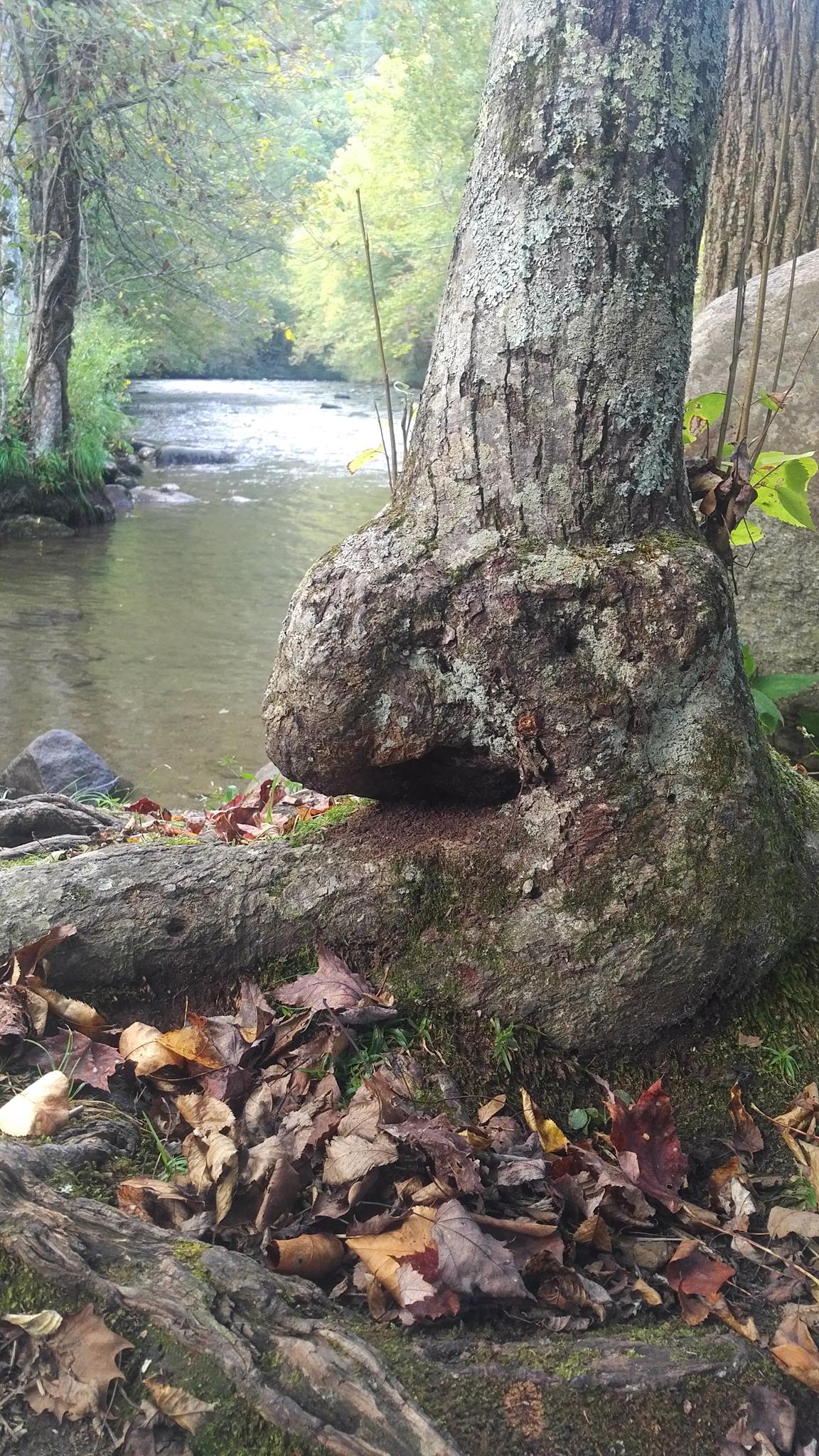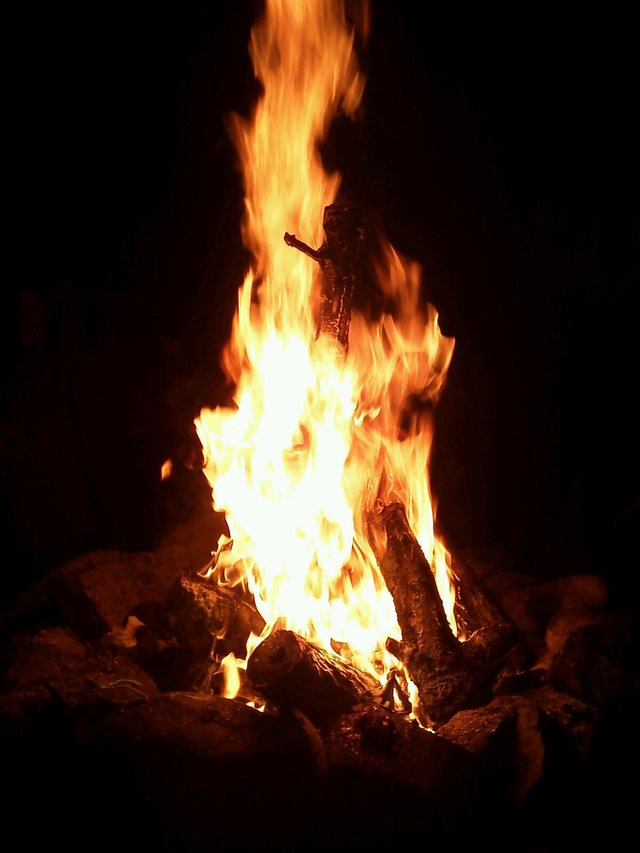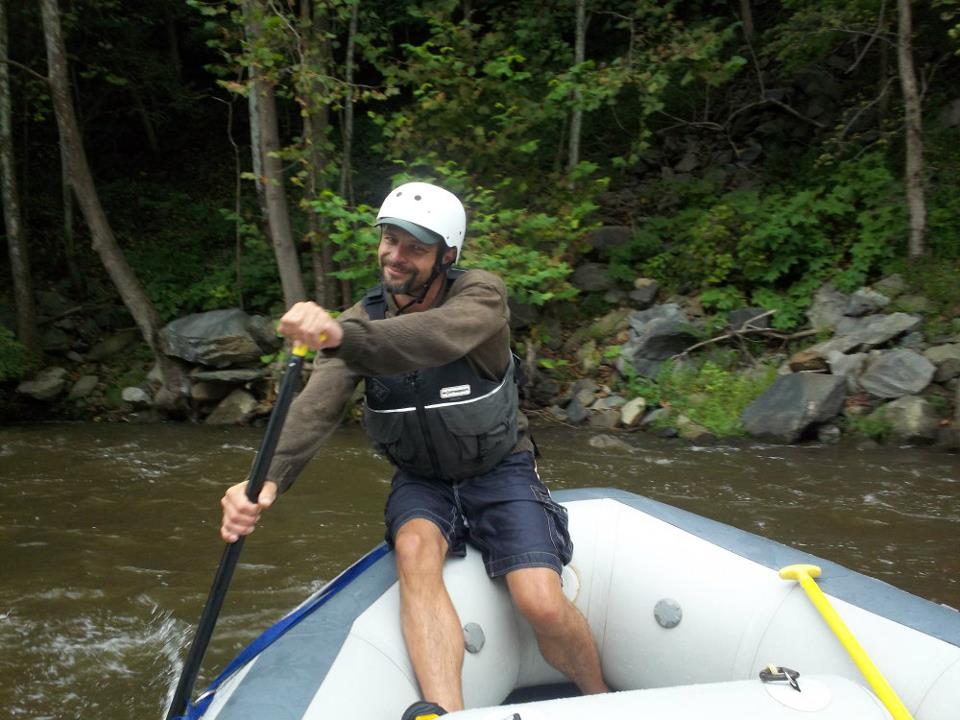From Chapter Five of Pearls in the Mountains
Chapter Five

“Hey!”
“Hey, river rat!” I said. “You’ve been gone for a good while.” I had a small fire going. Mary lay out a towel and dumped a bag of rocks onto it. She was smiling like a kid, showing them all to me. I tell you, that woman was charmed. I bet she was always the one to find the four leaf clover at picnics. She had about a dozen really great pieces of river glass and a number of pretty stones. I picked up a tear-shaped piece of glass. “This is a very old one, I bet.”
“Ya think?” Mary leaned over to see better. It was a heavy, thick piece of green glass, and it had been tumbled for so long that it looked just like a tear drop shaped rock. It didn’t look like glass at all. “I wonder what its story is,” she pondered.
“Yeah… Curious. What was it, originally? Where was it made? Who owned it? When did it break, and how? How did it come to be here? How was it discarded? The years and storms it has seen. An infinity of moments outside of its purpose, and all the floods…then you finding it, and its fate changing…”
“I can’t leave you alone for too long, can I?” she asked. I smiled as a response. “What’s in the pot?”
I looked down at the pot on the fire and stirred it lightly.“I found a couple of baby reishi mushrooms growing on a log earlier. I’m stewing them into a tea. In the morning, I’ll pour the tea into the coffee maker. You’ll love it. If you’re hungry, there’s plenty of food in the cooler.” We had packed a sort of cold tapas buffet. It was pretty amazing. She ate, and we inspected the river glass some more.
“I was thinking about how I’ll never know the story of each piece,” Mary said, “but I know that the story had to be exactly like it was, for each piece, or they wouldn’t be in my hands right now. If anything had changed, their journey here to me could have changed. They wouldn’t have been right there in those layers, in those piles of river slicks. And also, the odds were against me ever being here in the first place.” She looked at me.
“What’s your story, Mary?”

“I told you my story,” she replied. I scraped under the cast iron pot until there were no coals beneath it and stood up. The moon was peering over the steep, jagged horizon above us. I took her hand, and we stepped out of the firelight and into the night. My God…it was heaven.
“When do you think your story began?”
“I don’t know what you’re asking,” she replied. “I guess it was when my parents met each other.”
“Which time?” I asked.
“Ah. Good point. If they hadn’t already known each other in college they might not have talked that day ten years later. Maybe my story began much earlier than I realize.”
“Maybe quite a bit earlier. And your father’s story. His father’s story. Timing. Your mothers in your life and the loves that were and weren’t. More timing…”
“So many things to be exactly here,” she said.
“Yes, exactly. On the arc of an impossible trajectory, with broken glass as treasure, whispering broken pieces of tumbled stories.” Mary poked me in the side as a response.
“When did your story begin?”
“Who would know?” I pondered. “No one wrote anything down. When I went through the family home, I didn’t find a single written word. How strange. There was nothing to decipher. Nothing to learn. Of course, there was nothing to judge either. I guess she let those stories die with her. I wanted to know more about myself and the mechanics behind me, but I guess I can understand her choice. I always thought telling stories makes you vulnerable.”
“Why?” she asked.
“Because of the stories under the surface. The things that come out between the words. The conflicts. The things that show real motivations. Vulnerabilities. Weaknesses. Insecurities. Fears. Truths.”
“What do you mean?”
“If a person talks long enough, you start getting clues as to who they are, right? Who they really are. Not just from the stories themselves, but from tones and gestures. From word choices. Eye movement. It’s not the stuff they are trying to present, but it comes out if you’re looking for it. If someone talks long enough the real self shows through. Like the way a thief hiding behind a curtain can be seen by the outline the curtain makes around his body, you get a clearer picture of a person by the revealing story that shapes the story being told. If someone writes long enough, the truth of them comes out. The stuff they can’t even admit to themselves. And it can’t be taken back. A person’s real story lies under the surface the way the bulk of an iceberg floats under the surface. So I can guess that my story, my beginning, goes back to the forties, or maybe much earlier. Just from what I know. Things that happened then come through my nature now. Call it patterns and legacies. The story underneath the story. In a certain sense, I think we inherit much more than we realize. That’s why I would have liked to have known more details. And now our stories are more intertwined…yours and mine.”
“Why do you say that?”
“The glass links us, and it links you, in a way, to the people that brought it into my life. Maybe we could say that we each had a destiny – this fate that collisions happen; but also you can make them happen, and history gets changed.”
We went down to the raft. All the gear was out, but I had strapped a backboard across the front of the raft and had an inflated mattress strapped across it to lounge upon. Mary helped me carry the cooler down. I put it in the raft after she had climbed in, and pushed off gently into the pool. It wasn’t a very big pool, but there was enough room to enjoy a magical moment or more, floating and rowing in the moonlight with all those big gray rocks in the river, blue in this light. They rose like towers above us, growing out of the basement of the gorge. The moon was bright enough to cast very definite shadows. Mary was on the oars, rowing for her first time. “Have you done this before?” she asked, vulnerable again. She was very much loving this.
“It’s mystical, isn’t it? Yes, I’ve done this once…and it seems so long ago. Almost like it didn’t even happen. Just a dim memory. But yes, I’ve done this before. Not here, though, and not with you.”
“Were you in love?”
“Yes,” I said, “very much so.”
“How many times have you been in love?” she asked.
“What about you?!” I laughed.
“A few times.”
“Once.”
“Once?!” She didn’t believe me.
“At one time I would have said that I’ve been in love several times. Then one day that story changed and the answer became ‘once’. That’s the kind of love that I want, the kind that leaves the highest water line…the biggest flood. It erases all the lower water lines. History changing, right? I had that once.”
“You wouldn’t settle for a little less?”
“No, Mary. I’m thoroughly happy with my life as it is. I would add that one thing, another flood, but I can live without it. Floods can be devastating. What I can’t do is dam up that river in my heart with something that would make me miss that flood, or more importantly, myself. So I leave the space open. That’s why you’re able to be with me now, like we are. The space is open.” I helped her get us on a rock, and we shared a beer. In a glass bottle. That I opened with my Sawyer key. The river had almost returned to its normal level, the level we had originally intended to raft.
“What about that space if I’m not in it? If no one is? Like when I go back to Atlanta?”
“I call that ‘reckoning with myself.’ It’s very quiet.”
“It sounds scary.”
“At thirty-four, it was…scary. That’s why I filled my time so much then, always wanting someone to fill that space. So much noise. Talking. Music. Revelry. But things became different.”
“Why?”
“I wanted my integrity back…my self esteem. I had made enough messes, and I was tired of feeling like a puppet, dangling from threads of fears of myself.” Mary looked behind us at the raft.
“But that was her, wasn’t it? Your high water line. Same boat? Did you have your integrity then?” She was a little jealous. I looked at her long, smiling. I took a sip and handed the beer back to her.
“Very, very little. You want to be the flood. I’m the same way. You always wanted to be the biggest flood, and I don’t think there’s anything wrong with that.” She sat up a little straighter, soaking in the moon. Soaking it all in. The ripples on the surface of the water. The swirls of currents, the dark blanks of the eddies, and the spiraling whirlpools where they met. The waves. The rocks and the shadows. The stars and the cloudless sky. She breathed it all in slowly. Very carefully. And exhaled.
“Yeah,” she said, “fucking cheers to that.” And then she smiled and took a long swig, a little devil in her eyes.
We got back to the campsite, high above the river and well above the fire even, and we were standing in front of the big mattress. I had made it up nicely with lots of pillows and blankets. Luxury sleeping in the wilderness. “Where’s the tent?” Mary asked.
“Oh, I have a thing about tents.”
“Me too. I like them. What’s your thing?”
“Have you ever gotten out of a tent quickly?”
“No,” she answered, “actually, I ruin the zippers.”
“I’ve never gotten out of one fast either. My thought is, if you need to get out of a tent in a hurry, in one type of situation you might feel stuck, like, ya gotta pee. In another type of situation, the feeling might be…trapped, like, ‘Oh, fucking bear. Gotta go.’ I’m willing to have a lot of feelings, but trapped isn’t one of them.” Mary looked at me too long. I got undressed and climbed into the sloped bed. “What?” She was just standing over me. Smiling?
“Oh, I’m just admiring the river glass. Those stories behind the stories.”
“Effin stories…I’m talking about bears. Get in this bed now.”
“I hear ya.”

Thanks for your support @joenorwood!
Your contribution is appreciated.
To have your post shared with over 10,000 followers send 0.250 SBD or STEEM to @crystalhuman, your post will also be shared to twitter at https://twitter.com/Marketechnologi
✅ Send 1-2 SBD/STEEM for 100-200+ Upvotes.